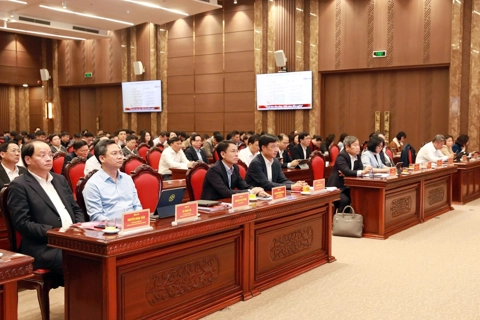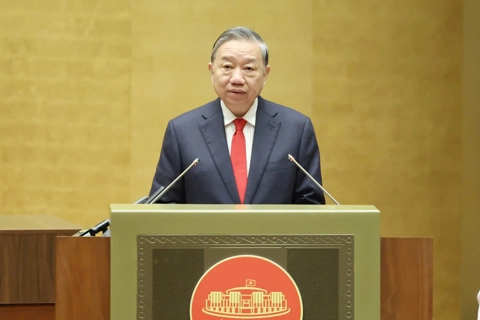HCM City to try out public bicycle system from August
As planned, all bicycles will be equipped with smart, GPS-equipped locks operated via 3G, 4G and 5G connections, or Bluetooth.
Vietnam’s southern metropolis, Ho Chi Minh City (HCM City), will trial a public bicycle sharing scheme in downtown areas from August in an effort to limit private vehicles.
Under the scheme, called Mobike, as much as 388 bicycles will be parked at 43 docks in Districts 1 and 3, the heart of HCM City, ready for people to borrow.
The 43 bike docks will be set up along sidewalks and bus stations around District 1, and along Dien Bien Phu and Vo Thi Sau streets in District 3, where the city is studying priority public bus lanes. Each dock will have ten to 20 bikes.
As planned, all bicycles would be equipped with smart, GPS-equipped locks operated via 3G, 4G and 5G connections, or Bluetooth. Users will have to install the Mobike app on their phones before scanning and searching for the nearest bike dock.
Mobike bicycles for test run in District 1 in October 2020. Photo: Ha Giang |
Each bicycle will have a unique ID card, so that operators can monitor vehicle whereabout and who is using it through a central software system. The smart locks will also send an alarm signal if they are opened by force.
During the 12-month pilot, each bicycle will be rented out at a proposed fee of VND10,000 (US$0.43) per hour and half that amount for 30 minutes.
Users will pay fees for 15-minute, 30-minute, and 60-minute rides or subscribe to daily, monthly, quarterly, and annual membership.
In the initial phase, bicycle-sharing users are expected to ride the bikes on the same lane with other vehicles.
After assessing the efficiency of the system after the 12-month trial phase, the municipal authorities will consider connecting it to the public transport systems.
In the future, the municipal Department of Transport will research on opening a bicycle lane or widening streets for bikes.
HCM City currently has almost nine million registered private vehicles, including 825,000 automobiles and 8.12 million motorbikes, according to its Department of Transport.
Since 2016 it has been considering measures to limit private vehicles in the downtown to ease congestion. It plans to spend VND393 trillion (US$16.93 billion) over the next decade to improve public transport and limit the use of private vehicles, in which VND47.7 trillion will come from the state budget while the rest from private sectors or Official Development Assistance.
The municipal authorities also have plans to develop an integrated application for all users of metro, public bikes, and public buses, with a goal of providing the locals appropriate public transport service anytime and at any place.












